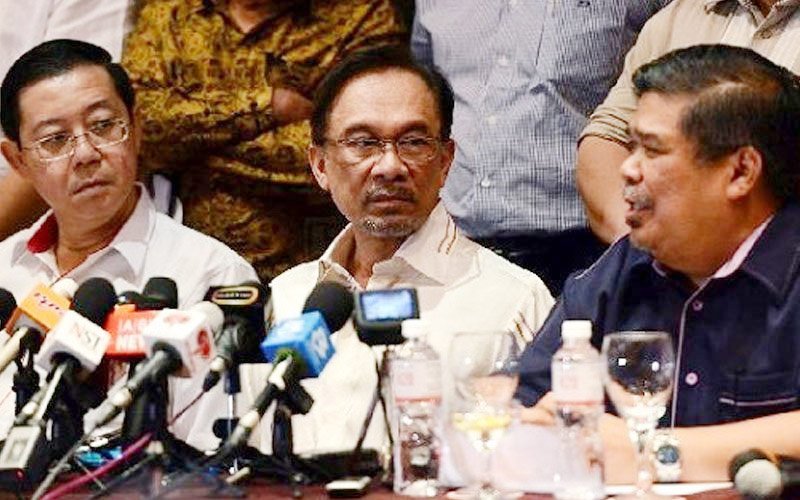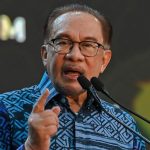Pakatan Harapan Must Embrace Radical Change

Pakatan Harapan Must Embrace Radical Change
MTN – Most pundits foresaw that Pakatan Harapan had electoral appeal issues, but not to the extent we all saw in Melaka.
PH not only failed to take the reins of government in Melaka, but was close to being decimated. This should be extremely alarming for its leadership. If PH can’t win in Melaka, it will have no chance of winning Putrajaya. If PH can’t change, then PH as we know it will not survive the coming general election.
Melaka was a good bellwether for the rest of the peninsula. Most of the state is semi-urban, and there are a majority of Malay voters in 20 out of the 28 state seats. Perhaps only PAS’ results underestimate the party’s national electoral potential, as the party’s strongholds are in the east coast states of Kelantan and Terengganu, and Kedah in the north.
Local issues played a minimal role in the Melaka elections, with the exception of candidate selection.
The election results reflect the dismal image PH holds with the voting electorate, and quantified the voter disappointment, apathy, and even anger with PH that all knew about but couldn’t numerically sum up, until Saturday night’s results.
Long-running discontent
Comments made at online news sites and on social media indicate a number of issues that have created negative perceptions of PH.
Discontent with PH has been long running and widespread after its unexpected general election win in 2018.
The coalition failed to implement much of its reform agenda. A poor string of by-election results sent PH a message that the electorate was disappointed.
Cronyism and corruption issues raised their head within the PH-run government before it was turfed out after the infamous Sheraton Move, which brought Muhyiddin Yassin’s Perikatan Nasional coalition to power.
Anger over Umno coming back to power through the back door did not equate to electoral support for PH.
DAP received a lot of blame, being perceived as being silent when it was in government over a number of decisions unpopular with its supporters. DAP leader Lim Guan Eng’s reputation is tainted with corruption issues, yet to be resolved; many party insiders believe he should have stepped down long ago.
The grassroots faction of the party has been largely replaced with the elitist faction, conjuring up perceptions of Chinese chauvinism with many voters.
PH and PKR leader Anwar Ibrahim has become a divisive figure, leading to many party members questioning whether he should remain as PKR president. There is criticism of Anwar’s failure to nominate a shadow cabinet and for signing an MOU to support the Ismail Sabri Yaakob government in Parliament.
An electoral liability for PKR?
Taking in Umno defectors for the state elections has cost PH dearly. Former Melaka chief minister Idris Haron who ran for PKR, lost in Asahan by more than 3,000 votes while Amanah’s choice of defector, Nor Azman Hassan, lost to BN candidate Tuminah Kadi in Pantai Kundor by more than 1,100 votes.
Anwar’s decision to replace Ginie Lim, who had strong local support in Machap Jaya, allowed the MCA to win the seat with a nearly 1,000-vote majority over Ginie’s replacement, Law Bing Haw.
Anwar’s lacklustre opposition to a racially unfair 2022 Budget led to a lot of online criticism.
Others claim that Anwar lacks any clear vision for Malaysia, and say they would prefer to see young candidates with fresh ideas. They are tired of intra-party politics and Anwar falling out with key party allies, the latest being the popular Rafizi Ramli, once a key electoral strategist for Anwar.
The calls for Anwar to resign have become much stronger now. His staying on as leader will be an electoral liability for PKR.
Reality must sink in
Malaysia is in the midst of a recession, with growing unemployment, rising poverty, rampant corruption, and a government making unpopular decisions over issues sensitive to traditional PH voters.
Winning should have been easy for PH. However, BN was able to project itself as a multiracial coalition, fighting for the same space as PH.
In the end, Perikatan Nasional votes eroded PH support, rather than BN support, leading to both groups suffering badly in the polls.
PH supporters see Syed Saddiq’s new political movement Muda as a new hope. Social media and chat groups are now becoming excited over Muda, while PH are now seen as losers.
The low voter turnout at 66% indicates voter apathy from all sides of politics. This is much more dangerous for PH, as they have to defeat the incumbent government to take power. PH must take close and careful notice and change, if they are to have even the slightest chance of winning GE15.
Melaka has clearly shown that Umno is back and Najib Razak, a convicted felon with 4.5 million followers on Facebook, is being cast as a hero.
Umno and its formidable grassroots election machinery have shown they are the dominant Malay party once again, taking the Perikatan Nasional challenge with ease. With MCA and MIC, Umno has reconstituted the BN as a multiracial umbrella once again. This proposition was accepted by the voters in Melaka.
Options for PH
- Do nothing – the most likely scenario. If this occurs, there will be growing dissatisfaction among coalition party members and voters. PKR could lose up to half of its current 47 seats in Parliament and the DAP may even lose a handful to successful MCA challenges. This would be a great setback for PH, taking them a generation to recover.
- Anwar Ibrahim resigns as the leader of the opposition. There are two problems to this scenario. Anwar has no intention of resigning. Even if Anwar was to do so for the good of the party, there is no visible heir apparent to take over, a great weakness within PKR itself.
- Form an alliance with Umno. PH would be in government again, albeit by sharing power. Umno can completely sever ties with PAS and become a more moderate party. There have been talks about this potentially winning alliance for some time between Anwar and Umno president Ahmad Zahid Hamidi. Party members from both sides would be staunchly against this, and most PH supporters would see this as a great betrayal.
- An “out of the box” option: amalgamate all PH member parties into a single party, something like South Korea’s Democratic Justice Party. This would create a true multiracial alternative to the race-based parties of the past. However, egos and differing agendas may make this almost impossible.
Pakatan Harapan now has a lot of serious thinking ahead of them.
[Murray Hunter/FMT]
Author Profile

Latest entries
 NationalJanuary 21, 2024Mirzan Mahathir dipanggil SPRM, Betamek terus beroperasi
NationalJanuary 21, 2024Mirzan Mahathir dipanggil SPRM, Betamek terus beroperasi Top IssuesJanuary 20, 2024Lim Kit Siang: Adakah Mahathir nak kata Samy Vellu tak setia?
Top IssuesJanuary 20, 2024Lim Kit Siang: Adakah Mahathir nak kata Samy Vellu tak setia? TokohJanuary 20, 2024PM Anwar: Bukan senang mahu siasat Tun
TokohJanuary 20, 2024PM Anwar: Bukan senang mahu siasat Tun TokohJanuary 19, 2024YDPA berkenan rasmi lokasi Temerloh titik tengah Semenanjung
TokohJanuary 19, 2024YDPA berkenan rasmi lokasi Temerloh titik tengah Semenanjung



